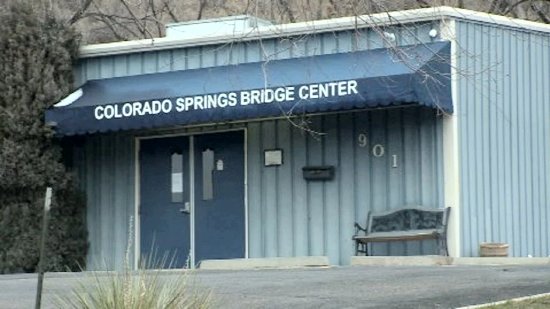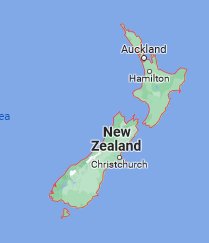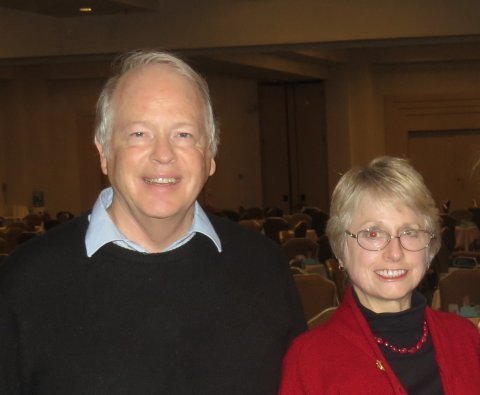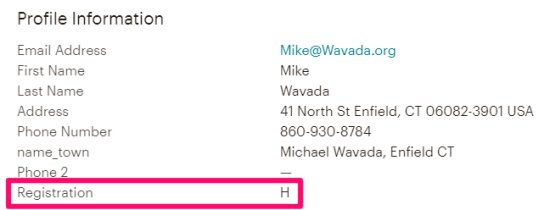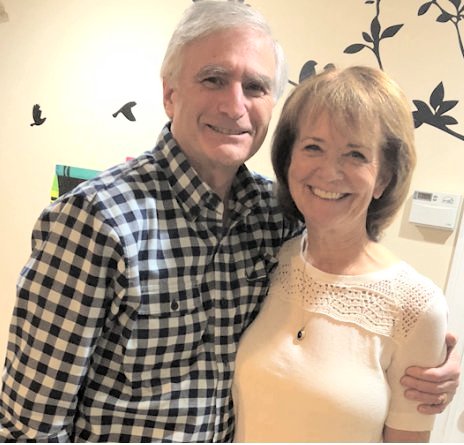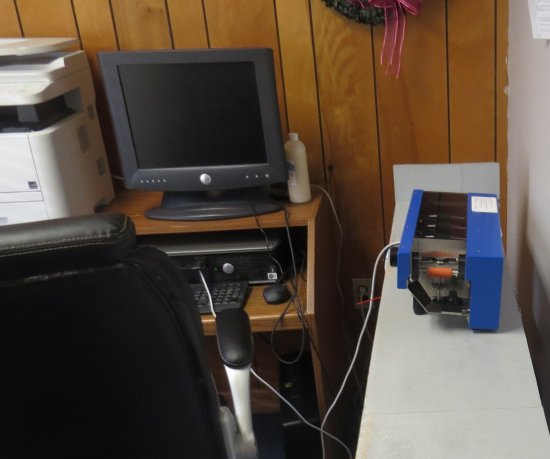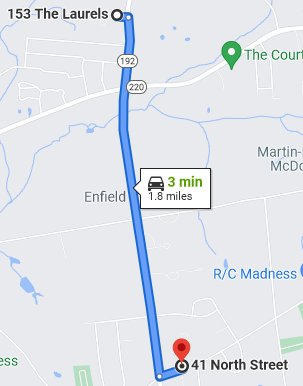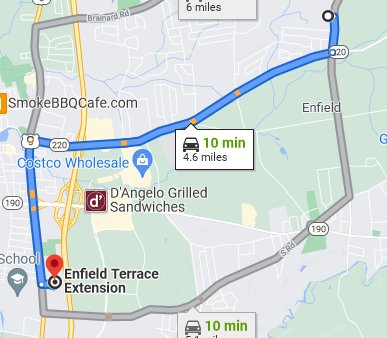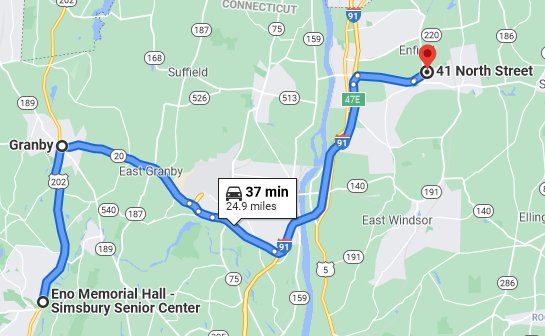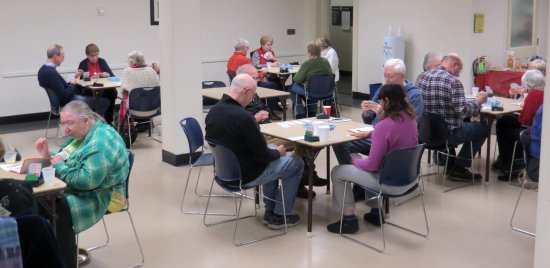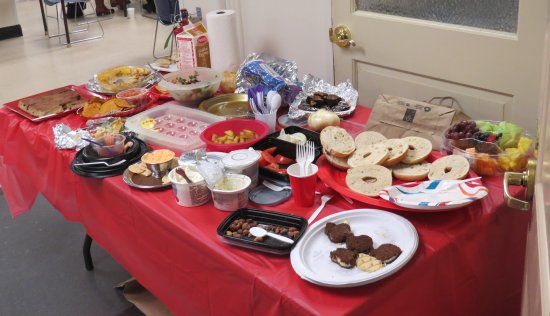SBC 2.1. Continue reading
Wednesday evening, March 11, 2020, was the date of the last game of the Simsbury Bridge Club at Eno Hall before the shutdown necessitated by the Covid-19 pandemic. Fred Gagnon played with my wife Sue. He regaled us with the story of how the week before he had played an event in Colorado Springs1 that Colorado’s “patient zero” also attended. He said, quite correctly, that he was very lucky that he had not played against her or in any other way associated with her. In those very early days the treatment methodologies were mostly guesswork. Dozens of other bridge players were not as fortunate as Fred.
At the time my wife Sue and I were scheduled to start a riverboat cruise on the Danube River2 the next week. We had heard that a few people had already canceled, and we half-jokingly asked Fred if he wanted to sign up.
The club’s usual director, Ken Leopold, could not attend on March 11. Margie Garilli substituted for him. As a result I ended up with all of the club’s bridge equipment during the pandemic.
Unless you were lucky enough to be stuck in New Zealand, you probably did not give much thought to face-to-face bridge for the next year or so. A few clubs in Florida reopened rather quickly, but some of them had to close because of transmission of the virus.
The Hartford Bridge Club resumed play on June 15, 2021. Several people asked me when the SBC was going to reopen. I told them that it was up to Ken, who was the director and proprietor. This was his response:
I’d like to see how live playing goes at HBC for a while. When we restart (probably sometime in July), I’m going to ask people to sign up on Mondays to see if we have enough people for a game. I think people should be vaccinated to play.
July was a bad month for Ken, and so I was not too surprised to receive on August 3 this email from Sally Kirtley, who had been the director before Ken took over in Simsbury and who had directed regularly for the Hartford Bridge Club before and during the pandemic:
I got an email from Eno that they are accepting reservations starting in the fall. I forwarded it to Ken, who responded that he is not going to be able to run it this fall. I don’t know if that means that he won’t be playing at all either. Just wondering if you think that it makes any sense for me to try to start it up again? Do you think that we will get enough players? Will you play if we start up again?
I replied that I definitely would play, but I thought that we should try to gauge how much interest people had in the game. I brought my mailing list (described in Part 1, which is posted here) up to date, and sent an email indicating that Sally and I were hoping to get the game going again in September. I asked people to respond if they thought that they would play, and I received over forty positive responses. Quite a few players indicated that they would play often.
The next email that I received from Sally on August 14 included the following:
I will see how quickly we can get into the space, and will definitely ask if we can require vaccinations – it being a public building, I don’t know. As a private club, we certainly could, but I will make sure.
As to masks, I think that we need to listen to the experts at the time. I am personally okay with people not masking if they are vaccinated, but I do think that they are probably a good idea.
I am also planning a vacation in October and will be gone 10/13.
Jeanne Striefler, a long-time member of the Simsbury Club reported to me that masks were definitely required in public buildings in Simsbury with or without vaccinations. Moreover, other groups that used public facilities had had problems with attempting to require vaccinations. I did not want to be involved in something that caused even one person to get Covid-19. I was therefore adamant that we require vaccinations.
The missive from Sally dated August 23 contained great news.
The town has reserved the room for us starting September 9. As of right now, masks are required in town buildings. We can require vaccinations.
I wasn’t exactly sure how we could check for vaccinations, but I thought that we should agree on a schedule and publish it as soon as possible. We had pretty much decided on starting play on September 15 when I received this email from Sally on August 27:
Eno Hall says we can’t require vaccinations on town property. I think that means a no-go for us – unless we just ignore them and request proof of vaccinations anyway?
So, I was forced to send out an email to everyone on my list that we would not start in September. Here was the text:
I wrote in the last email: “I am assuming that Eno Hall will allow us to verify that all players have been fully vaccinated. I, for one, will not play in a game that does not do this.”
Unfortunately, my assumption was wrong. The people who run Eno Hall will NOT permit us to check that all players have been vaccinated. Under those circumstances Sally and I are not willing to run the game. The current form of the disease is extremely contagious; one person could easily ruin it for many. We will review this decision in a few months. Perhaps things will have changed.
I received a lot of sympathetic responses to this. The one from Med Colket, who had played at Eno with his wife Kathy for several years, included an idea that caught my attention. I relayed it to Sally.
Med Colket had an intriguing suggestion. He recommended that we request that players submit proof of vaccination to me voluntarily. Then we only invite the people who have submitted valid proof. I would send out invitations every week, and people would RSVP. This will have the advantage of giving us a better estimate of table count.
A little later Jeanne learned that because we were a private entity we could require vaccinations if we wanted. The previous information that Sally received from Eno Hall had been erroneous. I decided to implement Med’s approach anyway. Our first game would be on October 20. I sent an email to everyone on my list:
We have used a suggestion from Med Colket to devise a way to reopen the Simsbury Bridge Club. We need a little time to get everything set up. Here is our schedule of games for the rest of the year:
October 20 and 27
November 3 and 10
December 8, 22, and 29. I am aware that some bridge players must cater to the wishes of burdensome family and friends during the holidays. However, I am optimistic about the last two dates because Christmas and New Years are on Saturdays this year.
Anyone can register as a vaccinated member of the SBC by sending an email or text to me, or leaving a message on my voice mail. You can register as either a player or a pair.
1) Designate the names of the player(s).
2) Provide proof of vaccination—either a photo of the card(s) or the date and time of a game played at the Hartford Bridge Club in 2021.
3) Pairs should designate whether they wish to be considered “recurring”.On the Friday before every game I will send to all who have registered as vaccinated an email announcing the next week’s game. The deadline for responses will be the following Monday. People should notify me (by email, text, or voice mail) if:
1) They are a “recurring” pair that will not be playing the following Wednesday;
2) They are a registered pair that is not “recurring” but plans to play.
3) They want to provide proof of vaccination for a partner who was not previously registered.
4) They would like to play but lack a partner.If fewer than twelve people (three tables) commit to play, the game will be canceled. I will send an email announcing the cancellation on the Tuesday before the game. I will also post a notice to that effect on the club’s website, which is at http://wavada.org/SimsburyBC/.
It was not overly difficult to implement this system. First I needed to add a field on the “audience” file for the SBC on the free version of MailChimp. I called the new field Registration. That part was easy, and I was familiar with how to do it. I then used a feature on MailChimp to designate two segments, one with a blank in this field and the other for players with a letter. I put an H in this field for those whom I had seen play at the Hartford Bridge Club and a C for people who had sent me copies of their vaccination cards.
The time-consuming part came next. I had to enter these by hand one at a time. I had to sort the file, find the player I wanted, select them for editing, scroll down to the field, enter the character, scroll to the bottom, and save it. The most annoying thing was that when I returned to the list of players, not only had my place on the list been lost. The records were also no longer sorted. So, I had to repeat the same process. After a while I had to add another step—skipping to the next page after sorting.
The good thing was that I could easily see a list of all the registered players and another list of the players who were on the master list but had not provided me with proof of vaccination. By the time of the first game seventy-two players were registered.
It has been well established that Ken and Lori Leopold had done a great job in 2019 of establishing a new standard for a small duplicate bridge club. One of the biggest attractions of the game—especially for those who often ate alone—was the wonderful spread of food and drink that Lori and some others helped prepare every week. Sally and I would have been happy if we could somehow have emulated them, but it was not really feasible for either of us, and the persistence of the Delta variant of the pandemic made it even a little dangerous.
Another thing that would be missing in this new version of the club—at least in the beginning—would be the lessons that I had presented. They had begun at 6PM or as close to that time as I could manage. Because I was still afraid of catching Covid-19, I intended to wear a mask, at least at first. I was fairly certain that one senior citizen struggling to speak through a mask to a group of senior citizens would not be very attractive. Also, the rest of the preparations would probably take up a good bit of my time, and I was quite busy with other projects, including these blog entries.
So, we would be relying on the wonderful game of face-to-face bridge to attract people to Eno Hall. We would also try to promote the same uniquely cheerful and supportive attitude among the players that the SBC previously boasted. We had strong hopes that those two elements would suffice.
As I mentioned, I had all the equipment, including the computer, at my house. Linda Starr, who had helped me in 2020 to use the Hartford Bridge Club’s Dealer4 machine to create the boards for SBC games, agreed to set up files for our first game and to give me a refresher course in how to create the boards. Actually, I had only the vaguest memory of how to use the the software that ran the dealing machine. She had to show me everything again. I took careful notes and promised not to lose them this time.
I was able to create a set of boards and to photocopy the hand records. I remembered how to load the dealing machine with cards, but I warned Linda that the fine coordination in my fingers was terrible. I then proved my point. When I withdrew the very first hand from the very first board three or four cards slipped out of my hand and came to res behind the shelves on which the Dealer4 was positioned.
This had happened to me at least once back in 2020. I just removed a box of who knows what from the bottom shelf and told Linda “At least I also have long arms and fingers.” I then skillfully retrieved all the missing cards. I counted them to make certain.
From that point on I created the boards and printed the hand records with almost no difficulty. I did not interpret this unexpected feat3 as an ill omen, but I probably should have.
Linda also created PBN files (needed to submit results) for all the rest of the games scheduled for 2021. She copied them to a USB drive that I had brought with me, and she showed me how to find them on the computer that ran the dealing machine. I should be all set for all of 2021.
By this time I had commitments from ten pairs. We were all set to have a real face-to-face bridge game!
On Tuesday, October 9—the day before the game—I received this depressing email from Sally:
We have a problem! Eno Hall is telling me that they can’t accommodate us tomorrow. We can start back next week. I’m sure we could use HBC for one week if you want to tell people to meet there one time? Or just tell them that we will start next week?
So, I had to send out an email announcing the cancellation of the first week. It frustrated and humiliated me to have to do it.
We later found out that the reason that they could not accommodate us was because they had not scheduled a janitor for that evening. That was what I had speculated was the source of the problem, but most people thought it must be something less mundane.
We had an even better turnout for the rescheduled first week—eleven pairs with a remarkably diverse level of experience. I came in early to the Hartford Bridge Club on Wednesday morning before the game. I planned to use the boards made for 10/20. I could see no reason not to use them. The only problem was that Linda had not copied that one file on the USB drive. So, I asked Donna Feir, the club manager and the director for that morning’s game, if I could copy that one file. My other alternative was to make new boards from the file for 10/27 that was already on the computer. That would take me about a half hour even if all went well, and then I would need another ten minutes or so to print the hand records.
I let Donna talk me into a third alternative—using the boards and the hand records created for the previous night’s game at the HBC. They were available because too few players had signed up. So, all that I had to do was to copy the PBN file from the computer used by the directors. I located the file without difficulty, put my USB drive in the port, and copied. I then put all of the gear in my car. Now I was ready.
I had arranged to take Sue Rudd and Maria Van Der Ree In my Honda to Wednesday evening’s game. I was supposed to pick Sue up at 5:30. The Honda and I arrived in Sue’s driveway fashionably late at 5:32. I honked my horn and waited a few minutes. Her house appeared dark. I honked the horn again. Then I took out my cell phone and dialed her number. It rang five or six times. Then a bizarre masculine voice identified itself as the “backup voice mail” for Sue Rudd. It then advised me not to leave a message because Sue does not usually check it!
So, I called Maria’s number to see if she knew what was going on. It rang five or six times and then went to voice mail. I left a message and could think of nothing better to do than to drive to Maria’s home. I found her outside waiting for me. I tried to tell her that she couldn’t play because I could not rouse Sue, but she got in the car anyway.
At that point, I called Sue Rudd again. Three phone calls in one day was a personal record for me; the previous record was one. Sue answered this time. She was upset at me for not picking her up on time. I told her that I had been in her driveway at 5:32, and I would be there again in ten minutes. I was. Sue got in my Honda, and we took off.
I was not stopped by any policemen on the way to Simsbury, but it wasn’t for lack of trying. I pulled into Eno’s parking lot at 6:45, fifteen minutes late. Jerry Hirsch was standing there waiting to help me with the gear.
Everyone was playing by 6:50. The game itself went fairly smoothly. We were done by our mandated finishing time of 10 o’clock. Everyone seemed to have had a good time. “And the evening and the morning were the first day.”
The crowded room that greeted me when I finally entered the playing area made everything worthwhile. The two people whom I had never met—David Marks and Ann Sagalyn—introduced themselves to me while Sally, Jerry, and a few others set up the six-table Howell.
When, after the scores had been announced, I tried to transfer the PBN file from the USB drive onto the SBC computer, I discovered that I had copied the wrong file at the HBC. So, I had to promise Sally that, when I obtained a copy of the right file, I would send it to her by email.
I then copied the file containing the text version of the results so that I could insert it into the email to the registered members scheduled for Friday.
I brought all of the gear home except the very heavy laptop and its power supply. Sally took those with her so that she could send the results to the ACBL.
I have driven from Simsbury to Enfield hundreds of times. I may have even bragged that I could do it blindfolded. On this evening, however, I was very tired. The adrenaline high had worn off. As I exited the parking lot, I turned the wrong way onto Station Street, which is one-way. This totally disrupted my perspective. I took Iron Horse Blvd. up to Route 10 without any difficulty, but then I missed my turn onto Wolcott Road. I could have salvaged a little dignity by turning onto Floydville Road, but I did not see a sign for it. Instead I drove all the way up to Route 20 in Granby. This little detour added perhaps ten miles to the trip.
I did not realize until the next morning that I had never eaten supper the previous evening.
I was still exhausted on Thursday, but I took the time to write up a Hand of the Week. It took me much longer than before because I had never precisely documented the php programs that I had written in 2019 to produce it. I eventually figured out how they worked, keyed in the hand and my ideas, and sent out an email to invite everyone to the game on November 3. This email included a copy of the summary of the results from the 10/27 game.
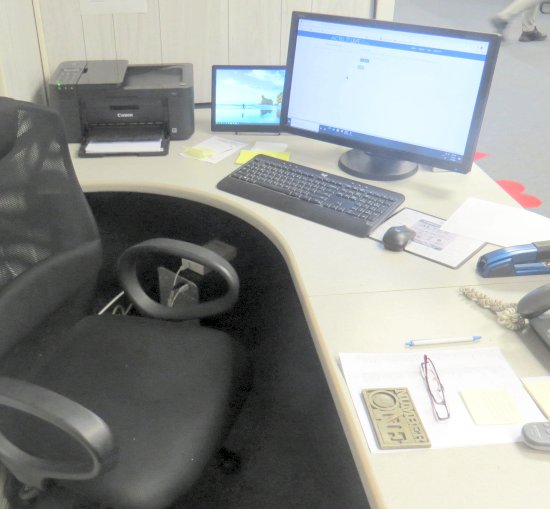
I obtained a copy of the correct PBN file and emailed it to Sally. However, I never received the email from the ACBL with a link to the Live for Clubs web page for the game. It turned out that Sally had never used the procedure for submitting results established in 2020 for submitting the results in the format required for the Live for Clubs software. She promised to figure it out.
The preparation for the second game went smoothly. The trip from Enfield to Simsbury was blissfully uneventful. Both Sue and Maria were ready on time. We arrived at Eno at 6:15, and we were ready to play by 6:25.
Unfortunately, Route 44 was closed because of an accident somewhere on or near Avon Mountain. The alternate routes were jammed with traffic. Two people from West Hartford—Felix Springer and Kathie Ferguson—arrived late.
When Felix arrived at about 6:45 we started the game. Al Gee and Kathie were assigned a sitout for the first round.
It was a near thing, but we got all twenty-four boards completed and scored so that we could leave by 10 o’clock. Some people had apparently doffed their masks at some point, and someone noticed them. Sally received an email on Thursday from Karen Haberlin at Eno Hall:
Hi Sally,
This is just a reminder that masks are still required in town buildings unless people are eating or drinking.
Thank you,
Karen

Meanwhile, Sally must have figured out how to attach the files; I received the emails for both games. I thought that something was still amiss. I noticed that the links to download the hand record files were missing from both the selection page and the results pages. I later determined that they were also missing on the HBC results. The software must have been changed during the pandemic.
I adjusted the emails in which I invite players to the next game so that the instructions for taking advantage of the feature for printing a hand record was removed.
1. On May 1, 2020 the New York Times ran a long article about this event and the popularity of bridge in general. It is posted here.
2. Our experiences regarding the First-Ever Regional at Sea on a Riverboat is described here.
3. The trickiest part of using the dealing machine is withdrawing the completed board from the machine. Cards sometimes get stuck. If you pull the board out a little and then push it back to adjust the cards, Dealer4 might start dealing the next deck. Then you have a mess to deal with.


